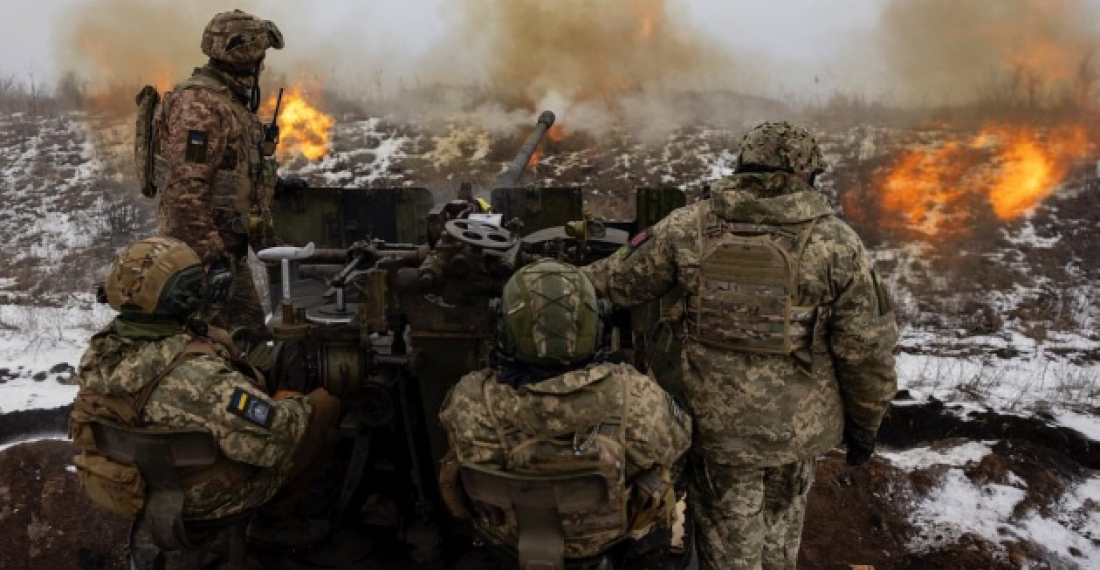The Ukrainian military repelled 60 Russian attacks in five areas over the past 24 hours in northeastern and eastern Ukraine, the General Staff of Ukraine's Armed Forces reported in its morning update on Tuesday (28 February).
Ukraine repelled the attacks near Kupyansk in eastern Kharkiv Oblast as well as Lyman, Bakhmut, Adviika, and Shakhtarsk in Donetsk Oblast, where Russia is concentrating its main offensive efforts, according to the General Staff.
Russian troops reportedly carried out eight missile attacks, 32 air strikes, and launched more than 85 attacks using multiple launch rocket systems between 27 and 28 February, the statement said.
Bakhmut situation deteriorates
Meanwhile, in his daily address on the evening of 27 February, Ukrainian President Volodymyr Zelensky said that the situation in the Bakhmut direction is "getting more and more difficult". He added that Russia "is constantly destroying everything that can be used to protect our positions, to gain a foothold and ensure defense".
The commander of Ukraine's ground forces, Col Gen Oleksandr Syrskyi, has said the situation around Bakhmut is "extremely tense".
Russia has been trying to take the medium-sized industrial town with a pre-war population of roughly 70,000 for over six months, and has long been a location where the front line has been the most active.
Russian forces - including troops from the Wagner mercenary group - are believed to have lost thousands of soldiers as they have made a slow and grinding advance towards the town, which has been almost completely destroyed by the fighting.
In its daily update on Monday morning (27 February), the Ukrainian Armed Forces claimed that Russia has now lost as many as 148,690 troops since 24 February 2022.






